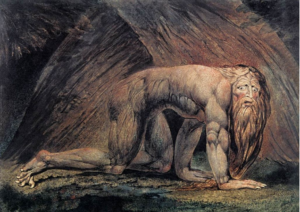
Here in the United States, we are deeply saddened and angered by a series of events triggered by the heart-rending, unjust, unconscionable killing of a black man by law enforcement on a street in Minneapolis. In reaction, what began understandably as deep heartfelt protests and peaceful demonstrations by both black and white, was quickly hijacked by agents of chaos and anarchy, hell-bent on bringing fires, death, and destruction. Yesterday, in reflection of the carnage of our cities, I heard a news commentator exclaim that he was “stressed out” over having weathered “one crisis after another” thus far this year, in effect asking ‘when will it all end?’ The world is beginning to note these trends.
The question becomes: does the Bible speak to these conditions and put them in context? Are there instructions to the Church in the midst of these events? How is the Church to react?
Two times in the Greek New Testament there is a unique word that is used to describe a condition, in Greek it is χαλεπος, in English it is chalepos (Strongs G#5467) that is pronounced with an initial “k”, as in “kalepos.” Its definitions range from “difficulty and trouble” to “fierceness and savagery.” In both instances of its usage, the combination of meanings seems unrelated, yet reveal a prophetic truth for us that is both exciting and foreboding, for it provides insight.
The first time we see this term is in a familiar episode of the Gospel of Matthew. As it unfolds, Jesus had healed many people and a crowd ensued around Him. He then tells His disciples to prepare a boat so they could sail to the east side of the Sea of Galilee to the Gentile side. As they departed, Jesus announced that going forward, His home would not be defined to a specific place, but by His ministry.
Pay particular attention to the word “fierce” represented by chalepos and I will use NKJV to present.
“And when Jesus saw great multitudes about Him, He gave a command to depart to the other side. Then a certain scribe came and said to Him, “Teacher, I will follow You wherever You go.”
And Jesus said to him, “Foxes have holes and birds of the air have nests, but the Son of Man has nowhere to lay His head.”
Then another of His disciples said to Him, “Lord, let me first go and bury my father.”
But Jesus said to him, “Follow Me, and let the dead bury their own dead.”
Now when He got into a boat, His disciples followed Him. And suddenly a great tempest arose on the sea, so that the boat was covered with the waves. But He was asleep. Then His disciples came to Him and awoke Him, saying, “Lord, save us! We are perishing!”
But He said to them, “Why are you fearful, O you of little faith?” Then He arose and rebuked the winds and the sea, and there was a great calm. So the men marveled, saying, “Who can this be, that even the winds and the sea obey Him?”
When He had come to the other side, to the country of the Gergesenes, there met Him two demon-possessed men, coming out of the tombs, exceedingly fierce, so that no one could pass that way. And suddenly they cried out, saying, “What have we to do with You, Jesus, You Son of God? Have You come here to torment us before the time?”
Now a good way off from them there was a herd of many swine feeding. So the demons begged Him, saying, “If You cast us out, permit us to go away into the herd of swine.”
And He said to them, “Go.” So when they had come out, they went into the herd of swine. And suddenly the whole herd of swine ran violently down the steep place into the sea, and perished in the water.
Then those who kept them fled; and they went away into the city and told everything, including what had happened to the demon-possessed men.” (Matthew 8:18-33)
In Matthew’s account, the demon-possessed men are called “fierce”, a translation of chalepos meaning “violent” with the added modifier “exceeding” suggesting more than violence, reaching to a level of uncontrolled, raging, and brutal insanity. In other accounts of this incident, we are told the possessed men displayed supernatural strength, controlled by many demons and able to break chains and fetters. No one could control them.
On the east side of the sea, Jesus made landfall in an unclean land, symbolized by demonic possession, swineherds, and living in an unclean world. Swineherding was common to the eastern side of Galilee, you would not find swine-herders on the western Jewish side. It is interesting that ancient Amorite rituals still prevailed there, such as venerating the dead on each full moon. On that night Amorites would sacrifice food for the dead of the underworld at their tombs and the most common and cheapest sacrifice was a pig. These pagan rituals date all the way back to ancient Sumer.
The second use of chalepos is direct and simple, and it sets the tone of a prophecy given to Timothy by Paul, in his last epistle written from a cold Roman prison cell. Knowing that his execution drew near, Paul’s epistle to Timothy as a young pastor was one of exhortation and warning, reflecting on the difficulties he knows will define the future.
Despite the chapter break, it is a continuous thought. Pay particular attention to the word “perilous” and noting the subject revolves around “the snare of the devil” and the subsequent effect he has on the world.
“And a servant of the Lord must not quarrel but be gentle to all, able to teach, patient, in humility correcting those who are in opposition, if God perhaps will grant them repentance, so that they may know the truth, and that they may come to their senses and escape the snare of the devil, having been taken captive by him to do his will.
But know this, that in the last days perilous times will come: For men will be lovers of themselves, lovers of money, boasters, proud, blasphemers, disobedient to parents, unthankful, unholy, unloving, unforgiving, slanderers, without self-control, brutal, despisers of good, traitors, headstrong, haughty, lovers of pleasure rather than lovers of God, having a form of godliness but denying its power. And from such people turn away! For of this sort are those who creep into households and make captives of gullible women loaded down with sins, led away by various lusts, always learning and never able to come to the knowledge of the truth. Now as Jannes and Jambres resisted Moses, so do these also resist the truth: men of corrupt minds, disapproved concerning the faith; but they will progress no further, for their folly will be manifest to all, as theirs also was.” (2nd Timothy 2:24-3:9)
Again, we find the Greek word chalepos, this time translated as “perilous”, used to describe the actions of men possessed by demons. They are out of their minds, uncontrollable and violent as Paul envisions the world of the latter days.
We might ask, “what are these perilous times?” Any arduous period of time can be described as troubled. These perils might include war, famine, epidemics, natural disaster, economic collapse or moral decline. But in the Timothy passage, Paul modifies the statement using this word with a list of failed human characteristics in primary focus. Rather, he seems to be describing behavior associated with men in the throes of rebellion or anarchy, the type that originate with evil behavior.
“And because lawlessness will abound, the love of many will grow cold.” (Matthew 24:12)
Throughout the world today there is a rampant and growing madness, a public insanity that is enveloping the nations. The norms, the social disciplines, buffers like “common sense” that could always be relied upon, have now virtually disappeared. Think for a moment about all the continents, in recent years we have seen swelling waves of street demonstrators spread a mixture of fire and hatred, demanding the support of their governments.

The Madness of Nebuchadnezzar
Daniel 4:31-37 tells us that King Nebuchadnezzar was punished by God for 7 years of madness and insanity, forced to live and eat like an animal before he was restored. Likewise, we are reminded today that this world is descending quickly into what will become its own 7 year period of insanity known as the Tribulation period.
In the Bible, the “seas” is often a symbol of the world, and in the Matthew account as Jesus and His company entered the boat, they entered the sea (like the world). Like the sea of humanity, it is stirred up by winds and weather, metaphors of conflict on the spiritual level and it also depicts the troubled condition of the world. During the storm, His disciples feared for their lives, but Jesus calms them and reminds them they must hold on to their faith in all circumstances. He then demonstrates that He is in control of the tempest.
Without a doubt, today we live in the “perilous times” that Paul described.
And the Church identifies and shares with the perils, the pain and suffering of this world, yet we are instructed to also share the message of encouragement and hope that can only be found in Jesus Christ. Dr. Martin Luther King, Jr. is a splendid and recent example of that role.
“Therefore you also be ready, for the Son of Man is coming at an hour you do not expect.” (Luke 12:40)
A first responder enters into a building on fire and their first priority is not the building, but to locate and rescue any people inside. Likewise, the Church today must recognize the world is on fire, that the severity and rapidity of the “labor pains” that Jesus describes in Matthew 24 and occurring in the world today, are heralding the end of days. The Church must respond and seek out those who are entrapped and without hope, offering them their rescue through salvation found only in Christ.
“I must work the works of Him who sent Me while it is day; the night is coming when no one can work.” (John 9:4)